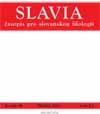Ruská exilová filozofie a míra jejího vzájemného ovlivňování s filozofií v Československu
Russian Exile Philosophy and the Rate of Mutual Influence with Czechoslovak Philosophy
Author(s): Vladimír GoněcSubject(s): Philosophy
Published by: AV ČR - Akademie věd České republiky - Slovanský ústav and Euroslavica
Keywords: Russian émigré philosophy; Czechoslovak philosophy; Neo-Kantianism in Russia
Summary/Abstract: A part of Russian émigré philosophers in Czechoslovakia played a significant role in forming the specific synthetic phenomenon of Czechoslovak philosophy, connecting Czech-speaking, German-speaking, Russian, Slovak and some French and Polish philosophers active in Czechoslovakia. West-focused Russian philosophers, mainly adherents of St. Petersburg Neo-Kantianism school enhanced Czech philosophers with the missing dimension of theoretical philosophy and solid theoretical foundations for practical philosophy. Furthermore, they mediated the co-operation of Czech- and German-speaking philosophers and helped to create the connection with philosophical schools in Germany. On the other hand, they were influenced by Czechoslovak environment, mainly by T. G. Masaryk. The most important individuals and their impact are described.
Journal: Slavia - časopis pro slovanskou filologii
- Issue Year: LXXX/2011
- Issue No: 2+3
- Page Range: 174-185
- Page Count: 12
- Language: Czech

